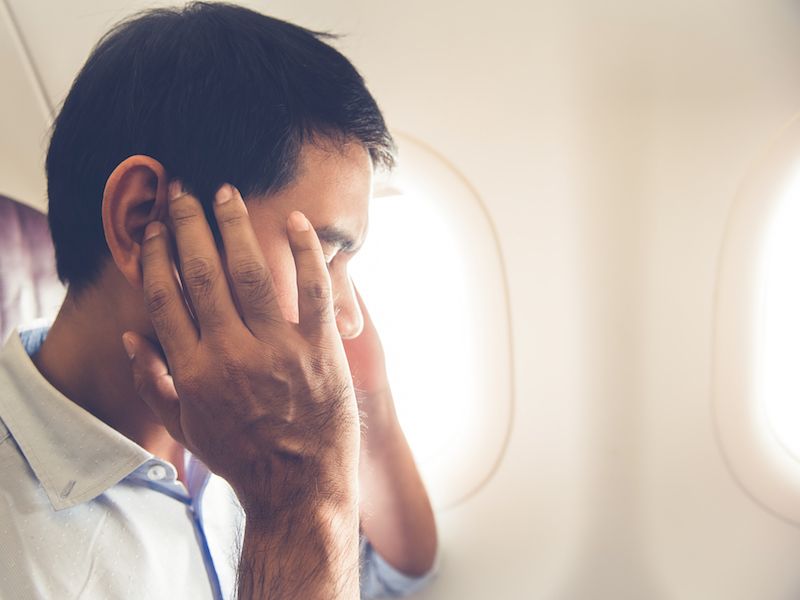
You have good days, and you have bad days, that’s par for the course for individuals with tinnitus but why? Tinnitus is the technical term for ringing in the ears, a condition that more than 45 million Americans endure, according to the American Tinnitus Association, and 90 percent of them also suffer from some amount of hearing loss.
But that doesn’t explain why the ringing is intrusive some days and nearly non-existent on others. It’s not entirely clear why this occurs, but some common triggers might explain it.
What Is Tinnitus?
The following phantom noises are heard by people who suffer from tinnitus:
- Ringing
- Clicking
- Hissing
- Buzzing
- Roaring
One of the things that makes tinnitus so disturbing is that you hear it but no one else can. Also, the pitch and volume can vary. It might be gone one day and the next it’s a roar.
Exactly What Causes Tinnitus?
Changes in a person’s hearing are the most common cause. These changes might be due to:
- Noise trauma
- Earwax build up
- Aging
- Ear bone changes
There are other likely causes, also, including:
- Head injury
- Atherosclerosis
- Tumor in the neck or head
- Meniere’s disease
- Acoustic neuroma
- High blood pressure
- TMJ issues
- A problem with the carotid artery or jugular vein
Sometimes there is no obvious explanation for tinnitus.
Consult your doctor to have your ears checked if you suddenly observe the symptoms of tinnitus. The issue could be something treatable or even a symptom of a life-threatening condition like high blood pressure or heart disease. A side effect of a new medication may also be the cause.
For some reason the ringing gets worse on some days.
It’s somewhat of a medical mystery as to why certain days are worse than others for those with tinnitus. And there could be many reasons depending on the person. There are common triggers that could explain it, though.
Loud Events
Your tinnitus can be aggravated by loud events like concerts, club music, and fireworks. If you expect to be exposed to loud noise, your best choice is to wear hearing protection. You can enjoy the music at a live performance, for example, without harming your ears by putting in earplugs.
Another thing you can do is to put some distance between you and the source of the loud sound. When you attend a fireworks show don’t go up front and stay away from the front row at a live performance. With this and hearing protection, the damage to your ears will be decreased.
Loud Noises at Home
Loud noises around your home can also be a problem. For example, mowing the lawn is enough to induce tinnitus. Here are a few other sounds from around the house that can cause injury:
- Woodworking – Power tools are loud enough to be a problem.
- Laundry – If you fold clothes while the washer is running, for instance.
- Wearing headphones – The function of headphones is to raise the volume of your audio which could be aggravating your tinnitus so it might be time to lose those earbuds.
If there are things you can’t or don’t want to avoid like woodworking, wear hearing protection.
Workplace Noise
Loud noises on the job have the same effect as a concert or the lawnmower. It’s especially crucial to use ear protection if you work in construction or are around machines. Talk to your manager about your ear health; they might provide the hearing protection you need. Let your ears rest during your off time.
Changes in Air Pressure
Many people have experienced ear popping when they take a plane. The change in air pressure plus the noise from the plane engines can cause an increase in tinnitus. If you are traveling, bring some gum with you to help neutralize the air pressure and consider ear protection.
Changes in air pressure happen everywhere not only on a plane. Taking the correct medication to alleviate sinus pressure is also helpful.
Medication
Medication may also be the issue. Certain medications are ototoxic, meaning they affect the ears. Included on this list are these common medications:
- Antibiotics
- Diuretics
- Over-the-counter pain relievers
If you’re experiencing an intensifying of your tinnitus after you begin taking a new medication, consult your doctor. It might be possible to change to something else.
For some people tinnitus is not just aggravating it’s disabling. To be able to figure out how to control it from day to day, the first step is to figure out what’s causing it.
